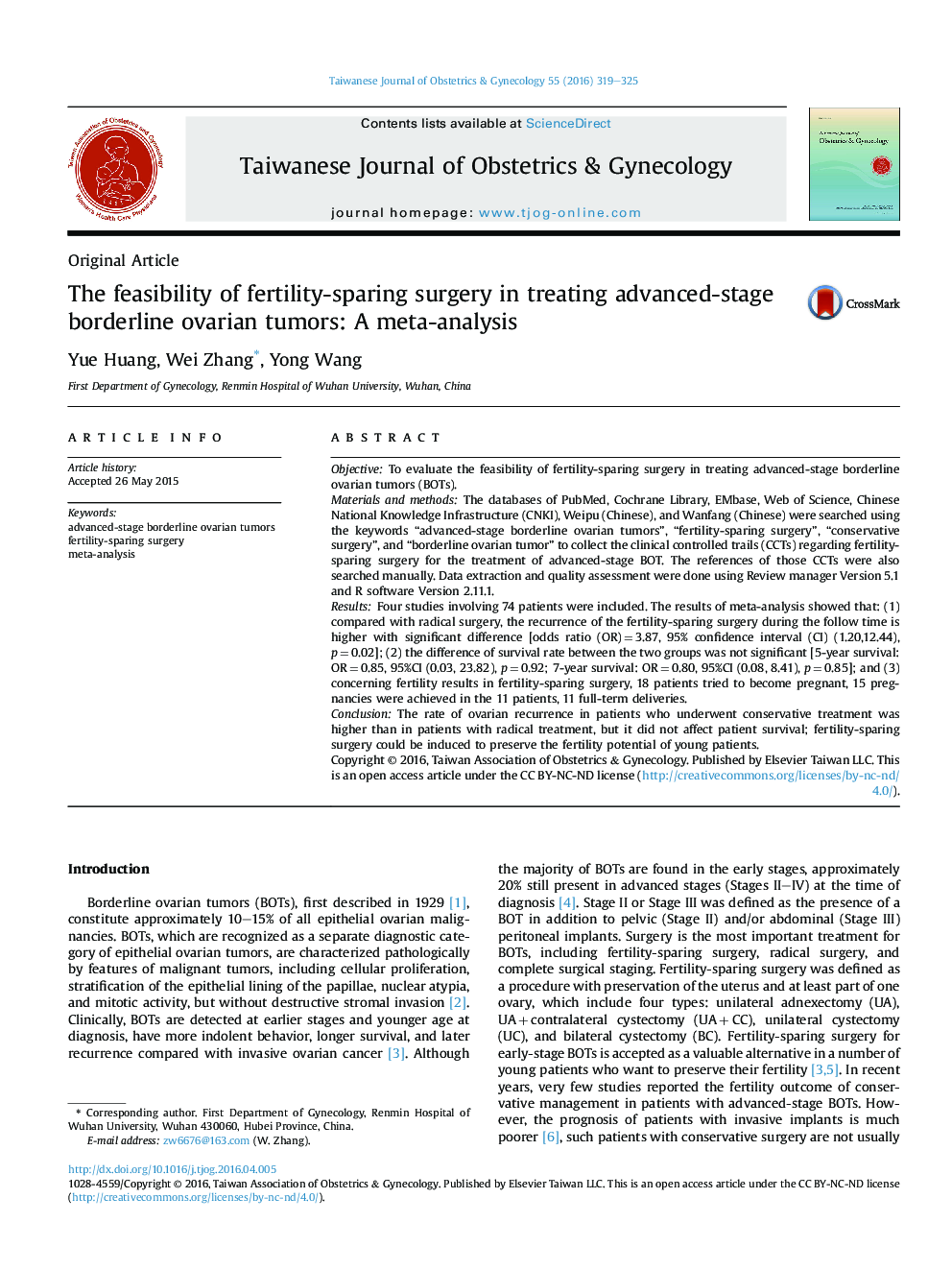| Article ID | Journal | Published Year | Pages | File Type |
|---|---|---|---|---|
| 3975153 | Taiwanese Journal of Obstetrics and Gynecology | 2016 | 7 Pages |
ObjectiveTo evaluate the feasibility of fertility-sparing surgery in treating advanced-stage borderline ovarian tumors (BOTs).Materials and methodsThe databases of PubMed, Cochrane Library, EMbase, Web of Science, Chinese National Knowledge Infrastructure (CNKI), Weipu (Chinese), and Wanfang (Chinese) were searched using the keywords “advanced-stage borderline ovarian tumors”, “fertility-sparing surgery”, “conservative surgery”, and “borderline ovarian tumor” to collect the clinical controlled trails (CCTs) regarding fertility-sparing surgery for the treatment of advanced-stage BOT. The references of those CCTs were also searched manually. Data extraction and quality assessment were done using Review manager Version 5.1 and R software Version 2.11.1.ResultsFour studies involving 74 patients were included. The results of meta-analysis showed that: (1) compared with radical surgery, the recurrence of the fertility-sparing surgery during the follow time is higher with significant difference [odds ratio (OR) = 3.87, 95% confidence interval (CI) (1.20,12.44), p = 0.02]; (2) the difference of survival rate between the two groups was not significant [5-year survival: OR = 0.85, 95%CI (0.03, 23.82), p = 0.92; 7-year survival: OR = 0.80, 95%CI (0.08, 8.41), p = 0.85]; and (3) concerning fertility results in fertility-sparing surgery, 18 patients tried to become pregnant, 15 pregnancies were achieved in the 11 patients, 11 full-term deliveries.ConclusionThe rate of ovarian recurrence in patients who underwent conservative treatment was higher than in patients with radical treatment, but it did not affect patient survival; fertility-sparing surgery could be induced to preserve the fertility potential of young patients.
